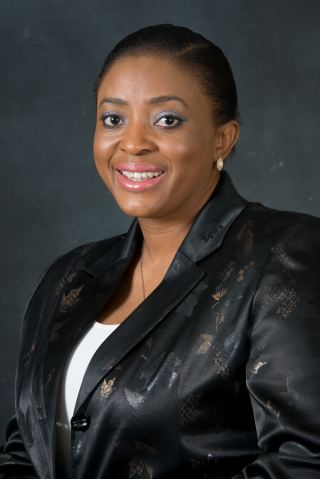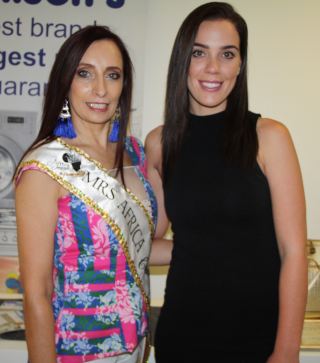The painful burden women achievers never talk about
By Mosima Selekisho, director at Signium Africa (www.signium.co.za)
International Women’s Day (8 March) has a provocative theme this year – Balance for better and encourage action. Presumably, balance is currently poor and action is needed for women to reach their goals. Most would agree with this assessment and IWD commentators will doubtless interrogate ‘the usual suspects’ –cultural norms, patriarchy, resistance to change and the supposed failure of some women leaders to do more to uplift other women.
The cry that top women don’t do enough has become strident in recent years. I am well placed to judge. As a so-called head-hunter for executive talent, I interact with women at the top of large organisations and with a new generation of female go-getters. Women on the way up often complain senior female colleagues do little to help while those who have made it will sometimes admit as much.
Why don’t they? Conversations over several years suggest the reasons go beyond demands on time or disinclination to lend a hand on the basis that ‘nobody helped me so why should I smooth the way for this newcomer?’ Top women find it difficult to help because they themselves are wounded and live with a lot of internal pain. This is never admitted. One characteristic of top achievers is that they put on a good front. They always seem in control. This mask never slips. Perhaps it should. The pain is inevitable. Women give of themselves and live every day with issues affecting husbands and partners, children and family members.
Thoughtful, giving women carry unseen burdens, especially in Africa. The scrapes of children at school, financial obligations when you’re the biggest earner in an extended family, a spouse’s career difficulties, the problems of kids at university, even police enquiries affecting members of the wider family ... all these issues and more have to be handled day by day. The woman who supposedly has it all is expected to solve it all. That can mean anything from helping a sibling quit substance abuse to paying the legal fees of a partner facing litigation. What can women do about it? First, look in the mirror and confess the professional front has become a mask. Admit you have been carrying internal pain for years.
You might even be embittered by the thoughtlessness of others and their assumption that you will always cope. This gives you a chance to release the pain. Those who have gone along this road say honest discussion with those close to you gives the best chance of a pain-free future. The blame you cast on those around you will be replaced by deeper understanding while those close to you will realise they can’t simply add to your burden.
You also have a life. Women released from private pain have more time for colleagues. Greater rapport leads to greater willingness to help. Upliftment of others is natural after that. Wounded women find they also achieve career growth. The focus falls on blind-spots and getting the wider team to work toward a single vision. The top achiever begins to see areas in which she can also improve. Carrying burdens makes you strong, but you eventually stoop under the weight and see just one step at a time. You only see the big picture and help others when you put the burden down.
*Mosima Selekisho is a Director of Signium Africa (previously Talent Africa), a leading South African-based executive search and talent management company servicing sub-Saharan Africa.
-- Ends --
Website:www.signium.co.za
Tel: +27 11 771 4800
Issued By: Tale Spin Media & Marketing
Zelda Williams 082 461 0689 or Gillian Schmid 082 960 3233
This email address is being protected from spambots. You need JavaScript enabled to view it. | This email address is being protected from spambots. You need JavaScript enabled to view it.
Footprint in Africa
Female entrepreneurs within the community recently gathered at Hirsch’s Meadowdale for the monthly Ladies Networking event hosted by Hirsch’s.
With over 30 ladies attending, they were ready to be inspired by Mrs. Africa Globe Classics- Adele Wotherspoon’s talk- “Footprint in Africa.”
Adele is the owner of JCT Events and Co-owner of Chrystal House. She is passionate about Education and believe that with early brain interventions we can make a difference to the face of education and poverty in Africa. Since 2010 Adele has been hosting her own pageant - Miss Dare2Care. Adele saw a need for our youth to be exposed to the “real world” and to work with and for the people in our society who didn’t have all the advantages that they had. The huge difference she saw in each student who took part in the projects, encouraged her to grow this programme, and she will soon launch the Dare2Care Youth Ambassador Program.
Adele started her talk by giving some statistics on the poverty levels in Africa; Over 500 million people in sub-Sahara Africa live on $1.90 a day or less- a principal factor in causing widespread hunger. “It is our duty- in a personal capacity or as an organization to leave our footprint in Africa by helping those in need. With many initiatives to reduce poverty levels in Africa and increase the educational system for the youth in Africa- it is easy to get involved and do your bit to create a big difference.”She said.
Adele ended her talk with a quote from Adam Scott; "Remember there's no such thing as a small act of kindness. Every act creates a ripple with no logical end."After Adele’s talk, Hirsch’s had the pleasure of congratulating Adele for being the latest winner of the monthly Margaret Hirsch Women in Business Achiever. She was awarded with a finalist certificate and Hirsch voucher.
If you would like to join the Hirsch’s Networking Mornings, nominate yourself or someone for the Margaret Hirsch Woman in Business Achiever of the Year Competition, please contact Letitia Haywood on This email address is being protected from spambots. You need JavaScript enabled to view it.



